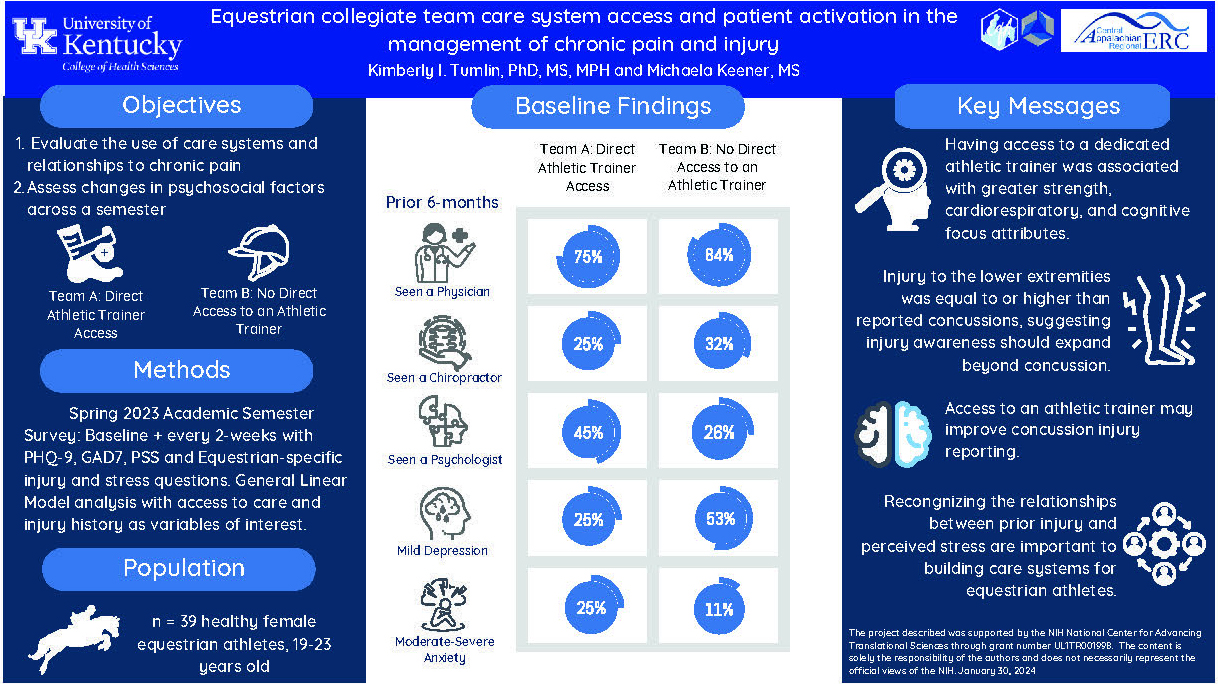How Access to Care Affects Management of Chronic Pain and Injury among Collegiate Equestrians

The infographic above is a follow-up to a study conducted in Fall 2023 on how access to care affects management of chronic pain and injury among collegiate equestrians.
According to a survey conducted by Kimberly Tumlin, PhD, research assistant professor evaluating horse-human interaction science in the for the Center in Innovation in Public Health and in the Department of Athletic Training and Clinical Nutrition (College of Health Sciences), almost half the members of a University of Kentucky equestrian team have suffered a suspected concussion and more than half experience chronic pain.
With funding from the Central Appalachian Regional Education and Research Center (CARERC), Tumlin sought to gauge the extent to which collegiate equestrian teams’ access to medical care and patient involvement helps manage chronic pain and injury. As part of her study, she collected and analyzed data on two teams: the University of Kentucky Hunt Seat Team, which is not required to provide direct access to health care following an injury, and the Sweet Briar College (Virginia) Hunt Seat team, which is required to provide such access to care. Tumlin expects to find that equestrian athletes with direct access to care systems will have less chronic pain than those without.
The objectives of Tumlin’s study were to evaluate equestrians’ use of care systems they have access to, track changes in equestrians’ psychosocial status (experiencing depression and anxiety) after injury and compare differences in social support of the UK and Sweet Briar teams.
The study included 39 total healthy female athletes participate (5% Hispanic, 87% White, 10% Asian, non-Hispanic). The majority were in their second and third years of college. The majority of riders had more than 10 years of experience.
Read more about the study here.
| Kimberly I. Tumlin, PhD, MS, MPH is a faculty member in the Center for Innovation in Population Health; assistant professor, Athletic Training and Clinical Nutrition, College of Health Sciences; and research director, Equestrian Athlete Initiative.
